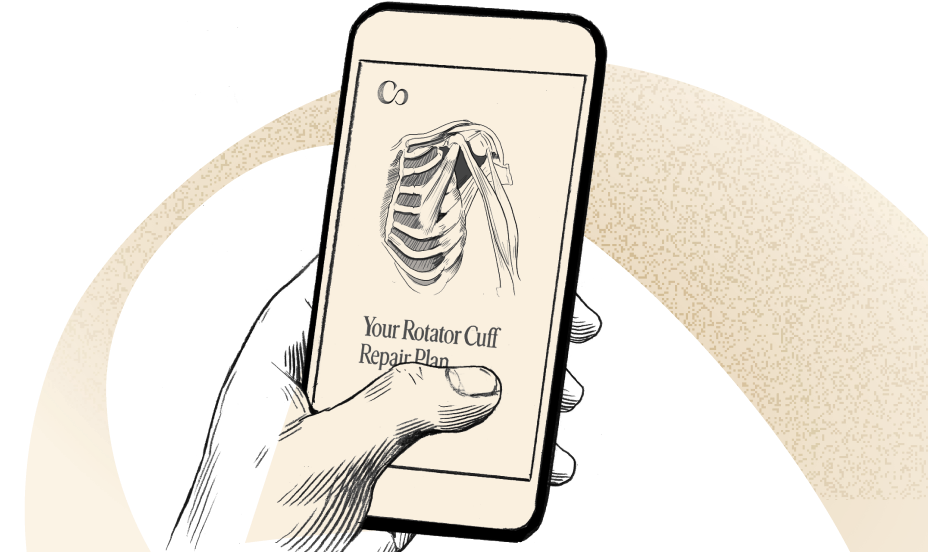Welcome to Commons Clinic: Prepare for Your First Visit
We can't wait to see you. Let's get you ready for your first appointment.

Before Your Consultation: How to Prepare
- Complete your forms online. You’ll receive a link via email before your appointment. Fill them out online to save time and skip the paperwork at the office.
- Gather your imaging and identification. If you have any relevant images (x-ray, MRI, CT), please have the reports and images ready. You can upload them directly from a CD or e-file, or bring the CD to your appointment. If you need assistance, our team can help confirm if we have access to your images. Be sure to bring your ID and a form of payment with you.
- Plan for your arrival. Arriving on time is key to ensuring a smooth visit. Please review the location and parking details provided in your pre-appointment email or on our website here.
- Be ready to answer key questions. To help your doctor conduct a thorough exam, think through these questions ahead of time:
- When did your symptoms start, and how did the injury occur?
- Was the onset sudden or gradual?
- What are your symptoms, and how severe is the pain?
- Is this affecting your ability to do everyday tasks and activities? Which ones specifically?
- Bring your questions. Write down any questions you have for your doctor so you can be sure to cover them during your visit. Check out our list of the top 10 questions below.

Top 10 Questions to Ask at Your Visit
We encourage every patient to ask these questions during their first consult—they’re designed to help you get the clarity you need to make confident treatment decisions.
What is my exact diagnosis, and what does it mean in plain language?
Understanding your diagnosis and care plan results in 30% better health outcomes and significantly lower anxiety.1
→ At Commons Clinic, we prioritize clear communication, without the medical jargon, to help you feel informed and confident in your care.
What are my treatment options, both surgical and non-surgical?
When you take part in shared decision-making, you’re more likely to be happier with your care and quality of life, no matter which path you choose.2
→ At Commons, collaboration drives every treatment plan—ensuring you understand your options and receive personalized recommendations tailored to what matters most to you.
What are the benefits and risks of each treatment option?
When you understand the risks and benefits of your care options, research suggests you’ll be more confident and committed throughout your recovery.3
→ Your Commons care team takes the time to walk you through the upsides and downsides of every option, so you can make the best decision for your health.
What is your experience treating this specific condition?
Higher surgeon volume is associated with 30–50% fewer complications and better outcomes.4
→ With specialized expertise, a high volume of procedures, and a proven track record of success, you can count on Commons to deliver the best possible outcomes for your care.
If surgery is recommended, what does the procedure involve?
Minimally invasive surgery can reduce hospital stays, blood loss, and recovery times by 30–50%.5
→ At Commons, minimally invasive techniques are our specialty—designed to promote better healing, faster recoveries, and exceptional outcomes.
What is the expected recovery time, and what will rehabilitation involve?
When you actively plan for and engage in your recovery, you’re more likely to regain full function and return to daily activities faster.6
→ Commons Clinic offers structured rehab programs and clear recovery instructions to help you stay on track and reach your health goals.
What results can I reasonably expect, and how soon will I notice improvement?
Outcomes and recovery timelines vary based on your condition and treatment, but most patients experience meaningful relief and improved function. For example, over 80% of patients post joint replacement report major improvements within three months.7
→ Commons Clinic’s comprehensive care plan gives you support every step of the way, so you know exactly what to expect and feel confident in your progress.
What are the potential complications, and how are they handled if they arise?
While complications are relatively uncommon (1–5%), proactive monitoring can reduce their impact dramatically.8 And all good surgeons will openly discuss them.
→ Commons Clinic’s proactive approach to care ensures any potential issues are addressed promptly, minimizing risks and ensuring a smoother recovery.
How long will the benefits of this treatment last?
The longevity of your results depends on many factors, including the recommended procedure. Most orthopedic treatments have good long-term outcomes, including modern joint replacements, which have a 90%+ success rate at 15–20 years.9
→ Our commitment to precise, whole-body care is designed to give you long-term results, so you can stay active for years to come.
Are there lifestyle changes I should make now to improve my outcome?
Changes like weight loss or quitting smoking have been shown to reduce surgery complications by up to 50%.10
→ Commons Clinic provides personalized guidance to help you make lifestyle adjustments that directly enhance your recovery and results.

During Your Consultation: What to Expect
- Check in with our front office staff when you arrive.
- A medical assistant will bring you to the exam room and take your vital signs.
- Your doctor will join you to learn more about what you’re experiencing and ask key questions to better understand your symptoms.
- You’ll have the opportunity to ask questions and discuss your health goals with your doctor.
- Together, you’ll walk through your diagnosis and build a personalized care plan, so you leave with answers and a clear path forward.
Have Questions Before Your Visit?
We’re here to help. Contact us at (310) 437-7921 or hello@commonsclinic.com.
Sources
1. Hibbard JH, Greene J. What the evidence shows about patient activation: better health outcomes and care experiences; fewer data on costs. Health Aff (Millwood). 2013;32(2):207–214.
2. Shay LA, Lafata JE. Where is the evidence? A systematic review of shared decision making and patient outcomes. Med Decis Making. 2015;35(1):114–131.
3. Elwyn G, Frosch D, Thomson R, Joseph-Williams N, Lloyd A, Kinnersley P, Cording E, Tomson D, Dodd C, Rollnick S, Edwards A, Barry M. Shared decision making: a model for clinical practice. Journal of General Internal Medicine. 2012 Oct;27(10):1361–1367. doi: 10.1007/s11606-012-2077-6
4. Katz JN et al. Association between hospital and surgeon procedure volume and outcomes of total hip replacement in the United States Medicare population. J Bone Joint Surg Am. 2001;83(11):1622–1629.
5. Cheng T et al. Minimally invasive total hip arthroplasty: a systematic review. Int Orthop. 2009;33(6):1473–1481.
6. Westby MD et al. Post-acute rehabilitation following total knee or hip replacement: a systematic review. Arthritis Care Res. 2014;66(10):1495–1507.
7. Kittelson AJ, et al. Understanding the Relationship Between 3-Month and 2-Year Pain and Function Scores Following Total Knee Arthroplasty for Osteoarthritis. The Journal of Arthroplasty. 2018;33(2):412-417.
8. Bozic KJ, Lau EC, Ong K, Vail TP, Rubash HE, Berry DJ. Risk factors for early revision after primary total hip arthroplasty in Medicare patients. Clinical Orthopaedics and Related Research. 2010 Jan;468(1):45–51. doi: 10.1007/s11999-009-0988-3
9. Evans JT, Walker RW, Evans JP, Blom AW, Sayers A, Whitehouse MR. How long does a hip replacement last? A systematic review and meta-analysis of case series and national registry reports with more than 15 years of follow-up. The Lancet. 2019 Feb 16;393(10172):655–663. doi: 10.1016/S0140-6736(18)31665-9
10. Kerkhoffs GM, van Es N, Wieldraaijer T, Sierevelt IN, van Dijk CN. Diagnosis and treatment of osteochondral lesions of the talus: A systematic review. The Journal of Bone and Joint Surgery – American Volume. 2012 Oct 17;94(20):1839–1845. doi: 10.2106/JBJS.K.00991






 (310) 423-9834
(310) 423-9834